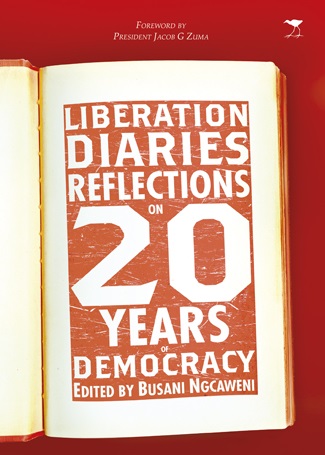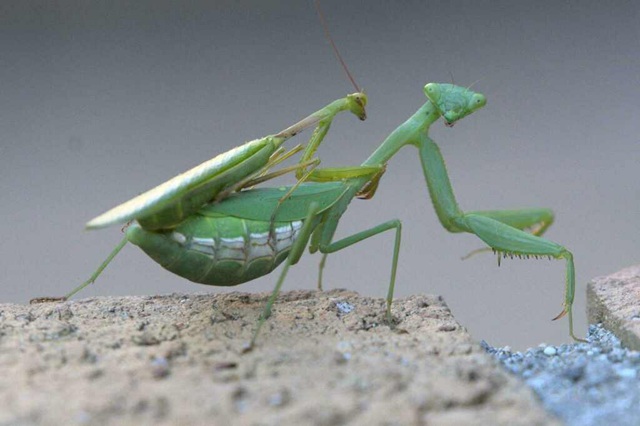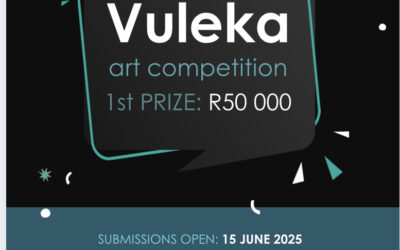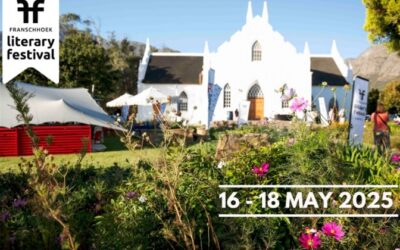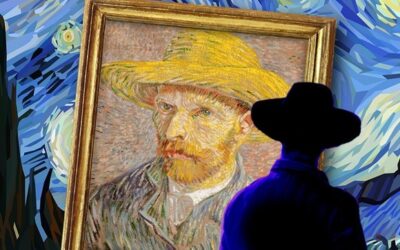Liberation Diaries, which brings together essays by 50 South Africans, is billed as ‘the state of the nation address, by the people’. Here’s a sample writes Mhlengi Wandile Ngcaweni.
Liberation Diaries (Jacana), edited by Busani Ngcaweni, brings together essays by 50 South Africans detailing how they have experienced 20 years of democracy. It is billed as ‘the state of the nation address, by the people’. Here is a sample, an edited extract from History Will Be Kind to Us for We Intend to Write It.
Born-free? What born-free? Born on May 2 1994, I was born right in the middle of everything: the elections had just happened on April 27 and the inauguration was on May 11. I am a first generation “born-free” – a child born into democracy. This means that we should never have to be disadvantaged on the basis of our race and, in theory, our backgrounds.
What does being a born-free mean to us, you might ask. In truth, being born-free means more in theory than it does in practice.
Being born free means we should never have to suffer the way the past generations suffered; that we can be whatever we want or dream to be; that we can date and be friends with whomever we like, regardless of race; that we can be educated anywhere we want and play any sport we want.
Basically, it means that we can do anything we wish to do and that we have rights from birth, which the past generations were fighting to get.
We have a lot of pressure on us as born-frees because we are actually the proof of the success or failure of this democracy. Our successes or failures will expose many things about being born post-apartheid and whether it really was a privilege to be born post-1994. Twenty years after democracy we are the proof that everyone has been waiting for to determine how successful our democracy has been.
Firstly, the country has seen how we have lived, how we have gone to school, what our challenges and weaknesses have been as a generation, and we have been criticised greatly for our lifestyles and choices by the older generations and leadership of the country.
Secondly, the country is waiting to see how we, born into a privileged South Africa, are going to perform on the world stage. They are waiting to see what kind of leaders might possibly emerge from a group born in “almost” total freedom.
We graduated from high school in 2012 and our graduation showed us some limitations on the part of government, as some of us have been unable to continue with our studies because there are not enough higher education institutions in South Africa.
It is government’s fault that a lot of the so-called born-frees will not have opportunities to further their studies.
I can speak only from what I see as an individual born in 1994 and hope that most of the issues I have decided to raise are agreed upon by other born-frees, and that they help the past and coming generations to see things as we see them and realise that change is something we want and will not apologise for.
I have been exposed to diverse social circles, different people at school and the general public. I have been able to analyse and determine if indeed we are a successful democracy and, if not, what are we still missing? This is something Nelson Mandela never had the opportunity to do.
All the young men and women I have had the honour of chilling with are paving their own special routes and trying to identify themselves and distinguish themselves as individuals.
They want to be intellectuals, entrepreneurs, poets, artists, sportspeople, writers and aspiring philosophers, teachers and professionals – to pursue any field they choose.
This social privilege was definitely not normal to someone born in the 1960s but to a child of 1994, now a young adult, this expectation could not be any more normal.
The thing that needs to be realised is that we are a diverse group of open-minded youth and we know a lot about the past, and we have accepted that what happened in the past was not right and the government was unfair.
I feel we have played our role in making sure we do not go back to those days; we have played our role in making sure we move forward and do not get stuck in the past.
We have a problem with being reminded constantly about how special and lucky we are that we are living in complete freedom with all the opportunities available to us. This constant drilling is not necessarily the best way to make us stay free. Freedom is, after all, ours by right and we should not be made to feel responsible for it.
Do not get me wrong: we are aware of all the sacrifices made earlier, as I have said, but we do not need to be taught to doubt our peers’ intentions or be afraid to express our opinions freely and openly just because we fear being labelled.
Letting us live together the way we wish would be the best because we are constantly reminded about the past, because some find it necessary to inherit the hate or the grudge, or they simply develop the grudge themselves.
Let us live our own lives. We do not find it necessary to fight wars that are not ours to fight as born-frees; the war has been won, but you still find people fighting it.
The past generations are to blame for us not generating new ideas but staying in the past because they are afraid that we will forget or not realise that we have not been completely freed as black people, as Steve Biko would have hoped.
We should fight Biko’s war individually and collectively and seek to free ourselves. And not forever hear about how the black man should do what, how and when, as Biko did. People of the past generation had their own battles and agendas, like winning democracy and getting rid of apartheid.
Our battles and agendas are different: to make sure that South Africa realises the prosperity aspect the ruling party aspired to – to building a nonracial, non-sexist, democratic and united South Africa.
Mhlengi Wandile Ngcaweni is an undergraduate political science and development studies student at the University of Johannesburg.
Via Mail & Guardian

